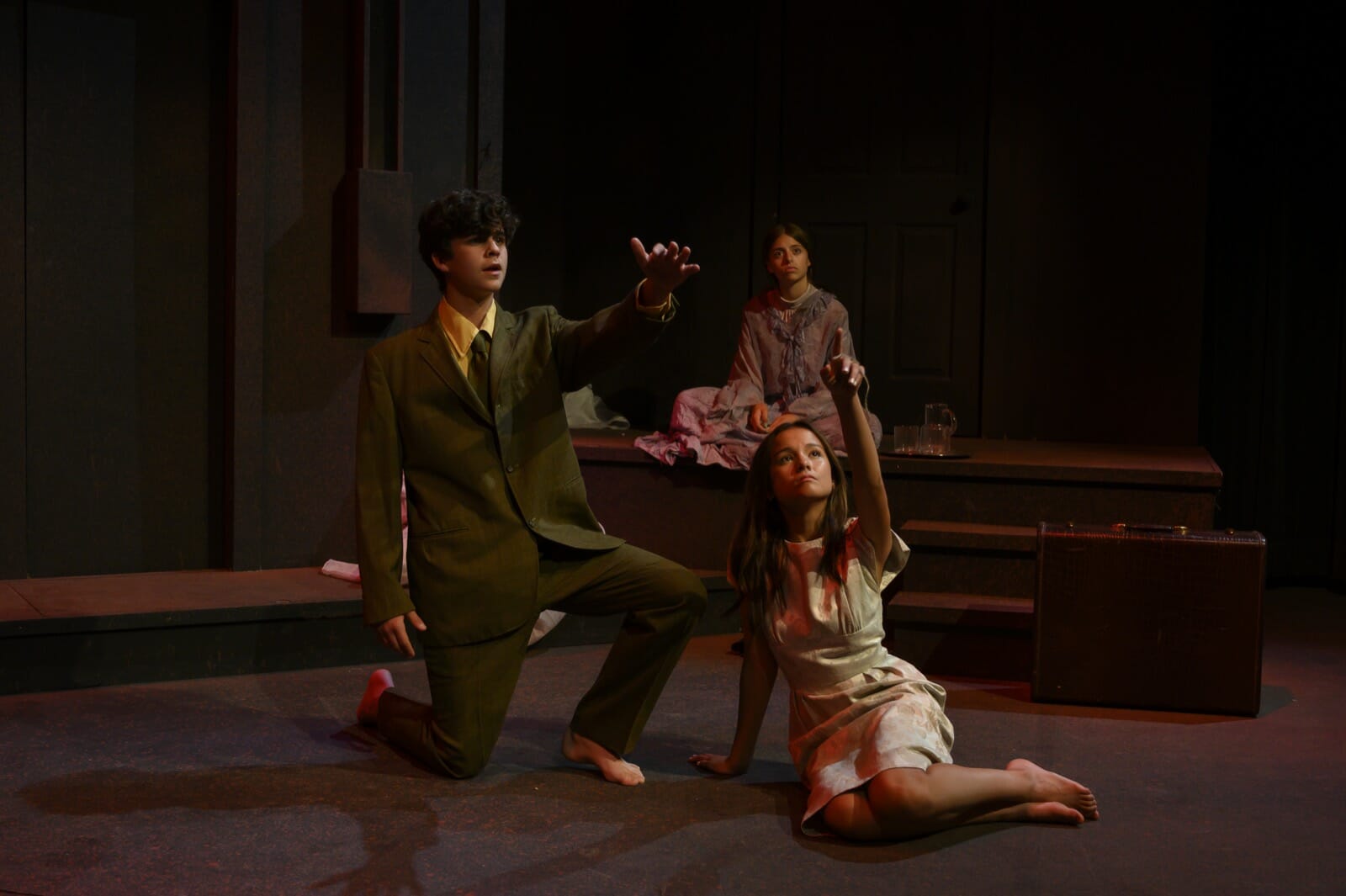In the traditional telling of the death of Eurydice, her husband, Orpheus, descends to the underworld to reclaim her, and in his grief plays such beautiful music that no god or spirit there impedes him in his quest. Only steps before completing their escape, however, when Orpheus cannot resist the urge to see Eurydice “at the very threshold of the day,” he stops and turns to look at her, and instantly she is lost to him again, “like smoke dissolving into empty air.” This is Virgil’s account in any case, but Sarah Ruhl, whose 2003 play Eurydice is being staged this weekend by several of our talented Upper School students in Price Theater, has a different idea about what happens in that moment of loss.
The story of Eurydice and Orpheus bears an uncanny resemblance to tales from other ancient cultures many miles distant from Greece. In Japanese mythology, the deity Izanagi seeks to rescue his sister-wife, Izanami, from the underworld. In exchange for her liberation, Izanagi promises not to look at her until they have both reached the land of the living, but he loses patience along the way and, lighting a fire in order to see her, discovers only a rotting corpse and flees in terror. In Hindu mythology, the widow Savitri perseveres through several acts of devotion in persuading Yama, the god of death, to restore life to her husband, Satyavan. Whereas this story has a comparatively happy ending—to my knowledge, Savitri is neither tempted to look back at her beloved nor penalized for doing so—in the Hebrew Torah (the Christian Old Testament), the wife of Lot meets with a terrible fate, being transformed into a pillar of salt for turning to behold the destruction of her home city of Sodom.
The Eurydice that Ruhl has written—and that our students will perform this weekend—resembles in essence but varies in particulars from Virgil’s story (no spoilers here), but so did Ovid’s before hers, and so did Virgil’s differ from Plato’s. Stories evolve with time, and they spawn close facsimiles. (“Immature poets imitate,” wrote T.S. Eliot. “Mature poets steal.”) Without The Odyssey, there would be no Ulysses nor As I Lay Dying (and without As I Lay Dying, there would be no Salvage the Bones). Without Romeo and Juliet, there would be no West Side Story. Without Emma, there would be no Clueless. (“As if!”) Recently I enjoyed reading The Hours by Michael Cunningham, but I would have had to find something else to do with my time if Virginia Woolf had not written Mrs. Dalloway first.
Just as Ruhl imagines a more complex Eurydice than Virgil, the Russian poet Anna Akhmatova imagines a more sympathetic wife of Lot than does the Torah. “Who will grieve for this woman?” Akhmatova asks. “Does she not seem / too insignificant for our concern? / Yet in my heart I never will deny her, / who suffered death because she chose to turn.”
The cross-cultural incidence and timeless durability of “hell and back” myths, of which the story of Eurydice and Orpheus is only one example, bespeaks its connection to fundamental human experiences–to grief and loss, and to the simultaneous refuge and tyranny of memory. “All myths are true,” a teacher once told me during a discussion of biblical narratives, “and some of them even happened.” Ruhl’s Eurydice is an ambitious work of art. I am proud of our Upper School faculty, cast, and crew for taking it on, and I look forward to the timeless questions it has to pose and truths it has to share.
Always reason, always compassion, always courage. My best wishes to you and your families for a happy weekend.
Jay Rainey
Head of School
